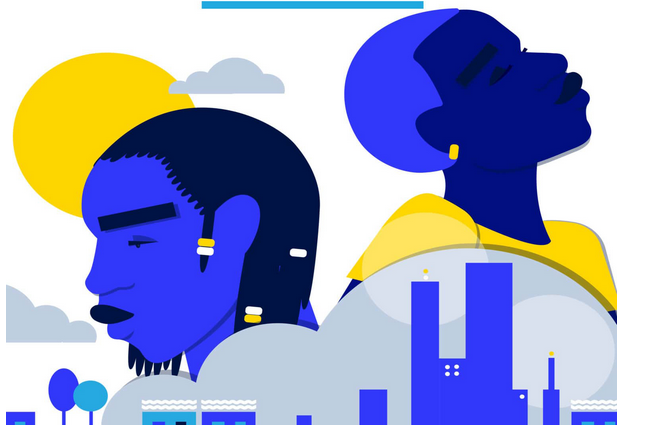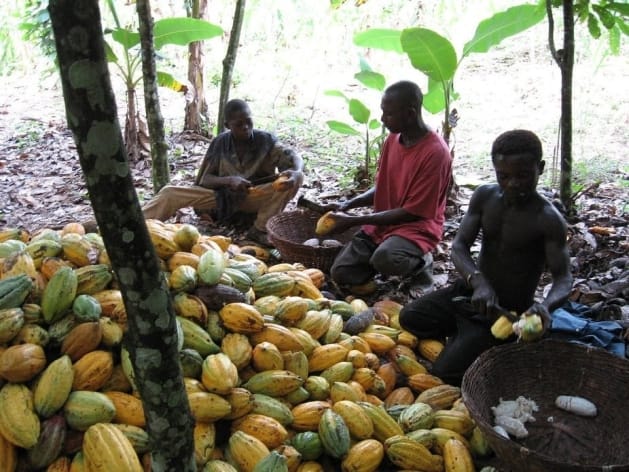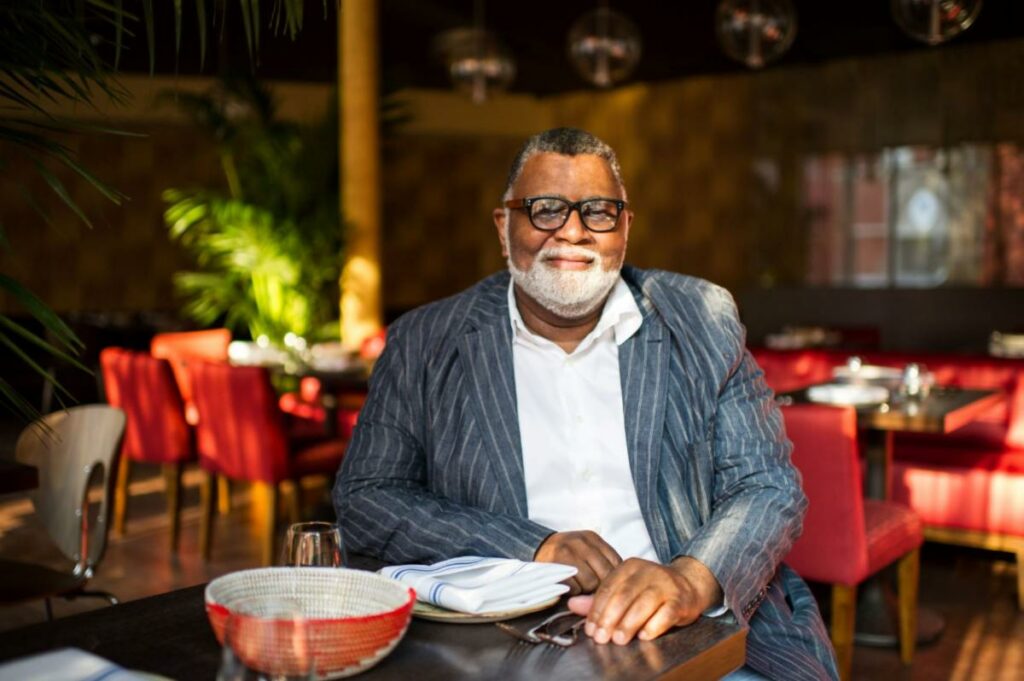International Day of Clean Air for Blue Skies- Spotlight on How African Young Citizen Scientists are Advocating for Clean Air and Greener Public Spaces
The 7th of September 2022 marks the third edition of the International Day of Clean Air for Blue Skies. This year’s theme, The Air We Share, highlights the need for collective action to improve air quality and protect human health. To commemorate the date this year, and as part of the UrbanBetter Cityzens for Clean Air, youth across three African cities share what the day signifies for them.
According to the World Health Organization , 99 percent of the world is now breathing polluted air. Air pollution is the greatest environmental threat to human health and causes 7 million premature deaths annually. It is also a significant driver of climate change.
In 2019, the United Nations General Assembly designated 7 September as the International Day of Clean Air for blue skies. The Day – whose observance is facilitated by the UN Environment Programme (UNEP) – stresses the importance of clean air and the urgent need for efforts to improve air quality to protect human health.
The theme this year is The Air We Share. It focuses on the transboundary nature of air pollution while stressing the need for collective accountability through global, regional and local cooperation. And the UrbanBetter Cityzens4CleanAir Campaign, a youth-led campaign on clean air and healthier public spaces is doing just that!
The campaign is using a participatory citizen science approach to amplify youth voices with advocacy on air pollution, climate and health using citizen scientist data generated by young runners. .
According to Dr Tolullah Oni,Founder of UrbanBetter, “We can’t change what we don’t measure, and measuring air quality in our cities is highly inadequate.” The campaign is using data stories generated by young citizen scientist runners to highlight the connection between air pollution and health (exemplified through running), the inadequacy of air pollution measurement and inequity in access to clean air within cities and the role that young people can and should play in co-designing solutions for healthy cities. From July to September 2022, citizen scientist runners aged 18-35 years were selected to design and (literally) run experiments in several neighbourhoods in Cape Town, Accra and Lagos. Across each city, these UrbanBetter Cityzens carry air quality monitors to track the levels of air pollution during their runsand use their phones to capture geocoded multimedia data on features of the environment that impact air quality, health and safety. These data will be analysed and used by the citizen scientists to develop tailored and evidence-informed advocacy campaigns that will be implemented in each city in November while COP27 is happening in Egypt.
We asked some of the run leaders how air pollution has personally affected them and their experiences with advocating for cleaner air in their cities. Here’s what they had to say…
From our run leaders!
For Offei-Darko Lord, an environmental advocate and biologist from Accra, the impact of air pollution was felt at a very young age.
“As a young boy who once struggled with asthma, a piece of my childhood was taken away from me. As a result, I have since pledged to be the voice of all young children in the fight against air pollution.” – Offei-Darko Lord, environmental advocate and biologist from Accra, Ghana.
Often, you can’t see air pollution, but it is everywhere. For Lunga Makhonxa , a professional runner, the visible effects of air pollution are clear in his community of Khayelitsha on the outskirts of Cape Town, where people rely on burning fire wood and coal for subsistence. This has a direct impact on his lung health and ability to train and engage in physical activity in his neighbourhood.
“Air quality matters to me because as a professional runner, major components of air pollution can cause constriction of the airways in the lungs. Less air pollution is really important for a healthy life.”– Lunga Makhonxa, elite athlete and long-distance runner from Cape Town, South Africa.
Similar sentiments were echoed by Francis-Yin, a student athlete and activist from Accra. Francis joined the UrbanBetter campaign because he was concerned about the air he breathes when running. He uses social media to create awareness and sensitisation on air pollution in his community, which has enabled him to reach a wider audience and challenge local leaders to take action on air pollution.
“My name is Yin Francis, I am a student-athlete. I live in a community of runners and as such, air pollution is a major concern to us, as we take in more air while running. We are pushing for cleaner air and greener running spaces by using our social media to advocate to friends and family and the world at large.” Yin Francis, student, University of Ghana, Accra, Ghana.
For Roland Postma, an urban planner and coordinator for the Young Urbanists movement from Cape Town, air pollution is closely tied to mobility in cities and urban planning.
“The Air We Share for me as a young planner means transforming our streets to be spaces for nature, people and active mobility. It is this transformation we need urgently to not only provide us with clean air but new spaces to instil the spatial transformation we need to reimagine what it means to be African and urban. African cities and towns cannot be designed just around private cars, if we get this wrong we will miss the strong foundation we need to make Africa (and the world) liveable in light of rapid urbanisation and population growth” Roland Postma, Young Urbanists, Cape Town, South Africa.
For town planner, Feyisola Mueez Quadri, The Air we Share represents the intersection between his profession (town planning), health and the environment. Feyisola believes that ultimately, The Air We Share and how we treat the environment is a reciprocal relationship.
“I am Feyisola Mueez Quadri from Lagos State, Nigeria. I am also a registered town planner and a full member of the Nigerian Institute of Town Planners (Lagos State Chapter). Presently, I work with the Lagos State New Towns Development Authority as a Town Planning Officer. Growing up in a slum area of Lagos Island, Nigeria, it always bothered me that the environment I grew up in was an eyesore. I went through high school and decided I was going to study urban planning because I enquired from older people and I was told that urban planners are the professionals in charge of managing the environment to maximise its functionality.
I believe “The Air we share” is simply about the air we give and receive. As someone with asthma, I have always been an advocate for clean air even subconsciously because clean air is key to human survival and essential for healthy lungs. As a Registered Town Planner in Nigeria, I have been able to advocate for clean air by enlightening my community members on required buffer zones needed as part of proper designated land uses especially for the location of industries that release toxic gases into the atmosphere. I believe we all have to take responsibility for the achievement of clean air in our environment because every human activity counts. And it starts with you and I.”– Feyisola Mueez Quadri, town planner, Lagos, Nigeria.
Economist and fitness enthusiast, Waziri Mainasara Abubakar also from Lagos shared his vision for a healthy future Lagos.
“I’m looking forward to seeing more green spaces and a Lagos where the quality of air we breathe will automatically be known by everyone as a core component of our quality of life.”– Mainasara A Waziri, economist, Lagos, Nigeria.
Miriam Gyan, a business manager working in the mining sector in Accra reiterates that access to clean air is a fundamental human right, as was recently declared by the UN Human Rights Council.
As our city gets more crowded, our activities pump out dirty emissions that make the air around us unsafe to breathe. Even though not always visible, we know pollution causes significant harm to our health. No one should die by simply trying to breathe. Access to clean air is a fundamental human right. We can do better.” – Miriam Gyan, business manager, Accra, Ghana.
These perspectives from these youth on The Air We Share highlight the ways that air pollution impacts health, physical activity, the right to access clean air, and the need to proactively design healthy urban spaces in the face of increasing population growth and urbanisation across African cities.
The UrbanBetter Cityzens for Clean Air campaign is a pioneering example of how individual and collective action can be leveraged to tackle air pollution starting with building the necessary evidence to advocate for cleaner air. It is clear that there is immense potential for catalytic change to make The Air We Share cleaner and more breathable across African cities, spearheaded by us, young people, the majority demographic in Africa. On this International Day of Clean Air for blue skies, we as UrbanBetter citizen scientists call for other young people to join us in our evidence-informed activism for cleaner air in our cities. Join the conversation and follow us on Instagram, Facebook and Twitter to find out how to join the global movement of UrbanBetter Cityzens, young people advocating for clean air and healthy public spaces worldwide #Cityzens4CleanAir #TheAirWeShare #CleanAirCT #CleanAirAccra #CleanAirLagos #WorldCleanAirDay.
——
Monika Kamkuemah is a Post-doctoral Researcher and Chief of Staff at UrbanBetter, Innovation Africa@UP, University of Pretoria, South Africa. You can reach her on LinkedIn at: https://www.linkedin.com/in/monika-kamkuemah-0709/




